What is a keratinocytes Cancer?
A keratinocyte cancer is a evil one neoplasm formed from keratinocytes, either from basal cellular keratinocytes or scaly cellular keratinocytes: the basic components of epidermis.
Keratinocyte cancer
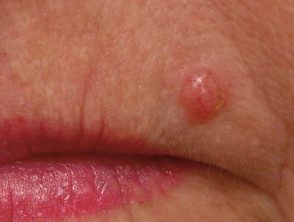
Basal cell carcinoma affecting the face
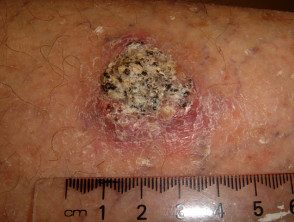
Squamous cell carcinoma of the extremities
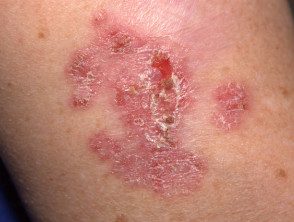
Intraepidermal carcinoma
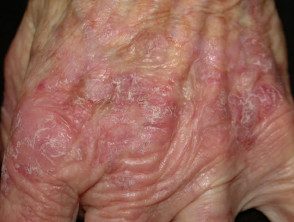
Actinic keratosis
How are keratinocyte cancers classified?
Keratinocyte cancers are cancers of the skin. They are classified as:
-
Basal cell carcinoma (BCC)
- Cutaneous squamous cell carcinoma (SCC)
- Intraepidermal squamous cell carcinoma (SCC in the place)
Actinic keratosis it is a precursor to squamous cell carcinoma.
Who gets keratinocyte cancers?
Keratinocyte cancers are the most common form of skin cancer and the most common form of cancer in humans. They are predominantly diagnosed in older fair-skinned people who have worked outdoors or who have suffered multiple episodes of sunburn.
They are particularly predominant in Australia and New Zealand
Keratinocyte cancers can rarely affect children and people with colored skin. See basal cell carcinoma of colored skin and squamous cell carcinoma of colored skin.
What causes keratinocyte cancer?
Keratinocyte cancers are mainly caused by exposure to Ultraviolet radiation.
Other contributing causes include:
- Genetic disorders such as xeroderma pigmentosum and basal cells nevus syndrome
- Immunosuppression as medications given to patients who have received organs transplant
-
Smoking (especially for squamous cell carcinoma).
What are the clinical features of keratinocyte cancer?
Keratinocyte cancers present as enlarged, solitary skin lesions.
They may be scaly or smooth, skin-colored or pigmented, intact or ulcerated, painless or painful.
What are the complications of keratinocyte cancer?
Keratinocyte cancers are destructive and often cause ulceration and scars
Neglected cutaneous squamous cell carcinoma can metastasis; metastasis It is rarely due to basal cell carcinoma.
How are keratinocyte cancers diagnosed?
Keratinocyte cancers are diagnosed clinically, often with the aid of dermoscopy, and the diagnosis is confirmed. histologically after skin biopsy.
Dermoscopy of keratinocyte skin cancer
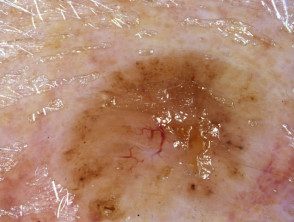
Dermoscopy of pigmented basal cell carcinoma
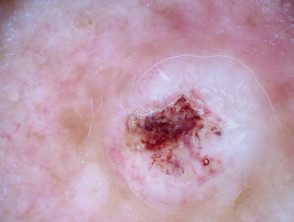
Squamous cell carcinoma dermoscopy
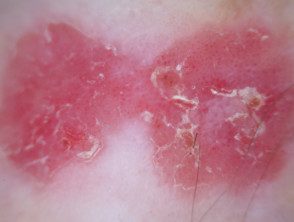
Intraepidermal carcinoma
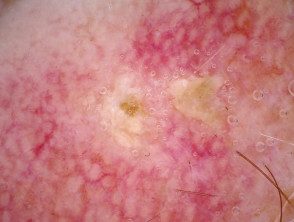
Actinic keratosis dermoscopy.
How are keratinocyte cancers treated?
Primary keratinocyte cancers are mainly treated by excision biopsy. Medium or difficult facial injuries may undergo Mohs micrographic surgery.
Superficial forms of skin cancer can also be treated by superficial surgical techniques such as curettage and cauterizationby cryotherapyand topically with 5-fluorouracil cream, imiquimod and others.
Occasionally, radiotherapy It is used to treat keratinocyte cancer.
What is the result of keratinocyte cancer?
Almost all keratinocyte cancers are cured by treatment. However, advanced squamous cell carcinoma of the skin (and rarely basal cell carcinoma) can ultimately prove fatal.
